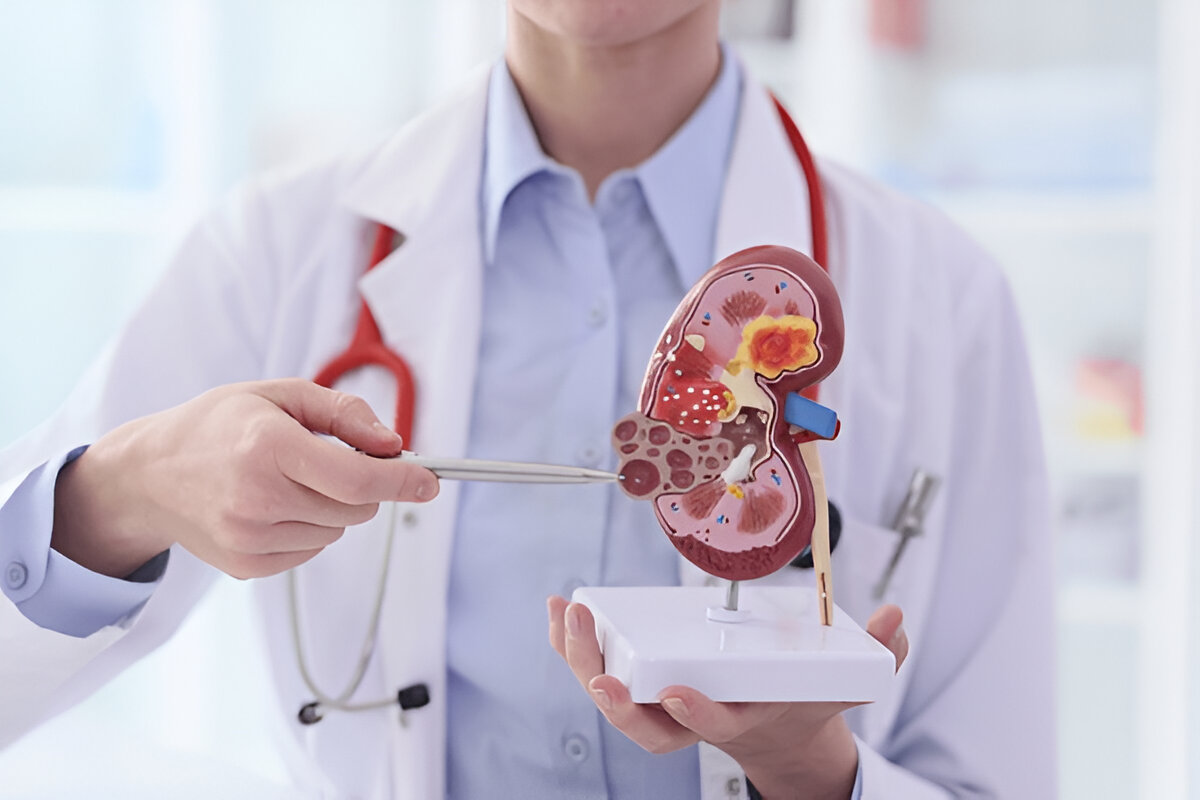
Glomerular Disease Treatment
Glomerular diseases refer to a group of conditions that damage the glomeruli—tiny filtering units within the kidneys. These conditions may develop suddenly (acute) or progress slowly (chronic), often leading to proteinuria, hematuria, hypertension, and kidney failure if not treated properly.
- Glomerulonephritis
- Focal Segmental Glomerulosclerosis (FSGS)
- IgA Nephropathy
- Membranous Nephropathy


Diagnosis:
Accurate diagnosis is essential for effective treatment. It includes:
- Urinalysis – to detect protein, blood, or casts in urine.
- Blood Tests – to evaluate kidney function (e.g., BUN, creatinine, GFR).
- Serologic Testing – to detect autoimmune or infectious causes.
- Kidney Biopsy – a crucial test for definitive diagnosis, helps guide treatment.
- Imaging – Ultrasound to rule out structural abnormalities.
Treatment Options:
Treatment depends on the underlying cause, severity, and whether the disease is primary or secondary:
1. Medications
- Immunosuppressive Drugs: Such as corticosteroids (prednisone), cyclophosphamide, mycophenolate mofetil, or tacrolimus to reduce inflammation.
- ACE Inhibitors/ARBs: To control blood pressure and reduce protein loss in urine.
- Diuretics: To control fluid retention and swelling.
- Statins: If cholesterol is high.
- Antibiotics/Antivirals: If infection is involved.
2. Diet & Lifestyle Changes
- Low-salt, low-protein, and low-fat diet.
- Fluid restriction in case of swelling or hypertension.
- Blood sugar control in diabetic nephropathy.
- Avoiding NSAIDs and nephrotoxic substances.
3. Plasma Exchange (Plasmapheresis)
- Used in specific cases like Goodpasture's syndrome or rapidly progressive glomerulonephritis.
4. Treatment of Secondary Causes
- Managing diabetes, hypertension, lupus, or infections that contribute to glomerular injury.
5. Dialysis or Kidney Transplant
- In advanced or end-stage kidney damage when other treatments fail to preserve function.